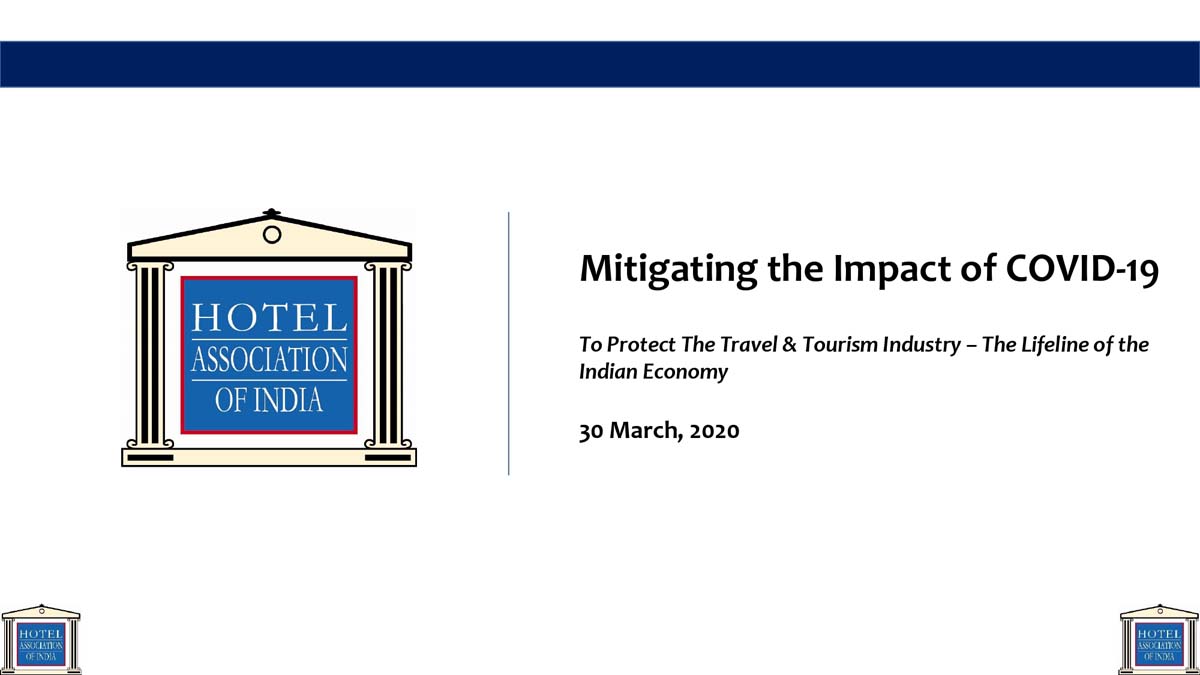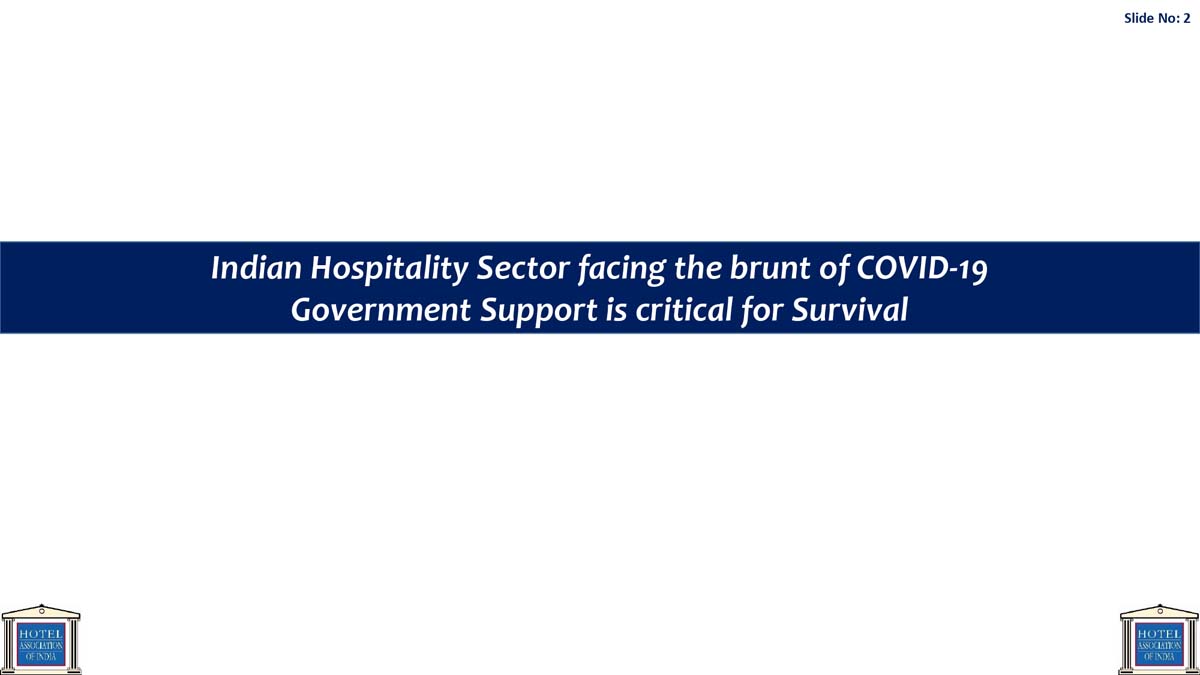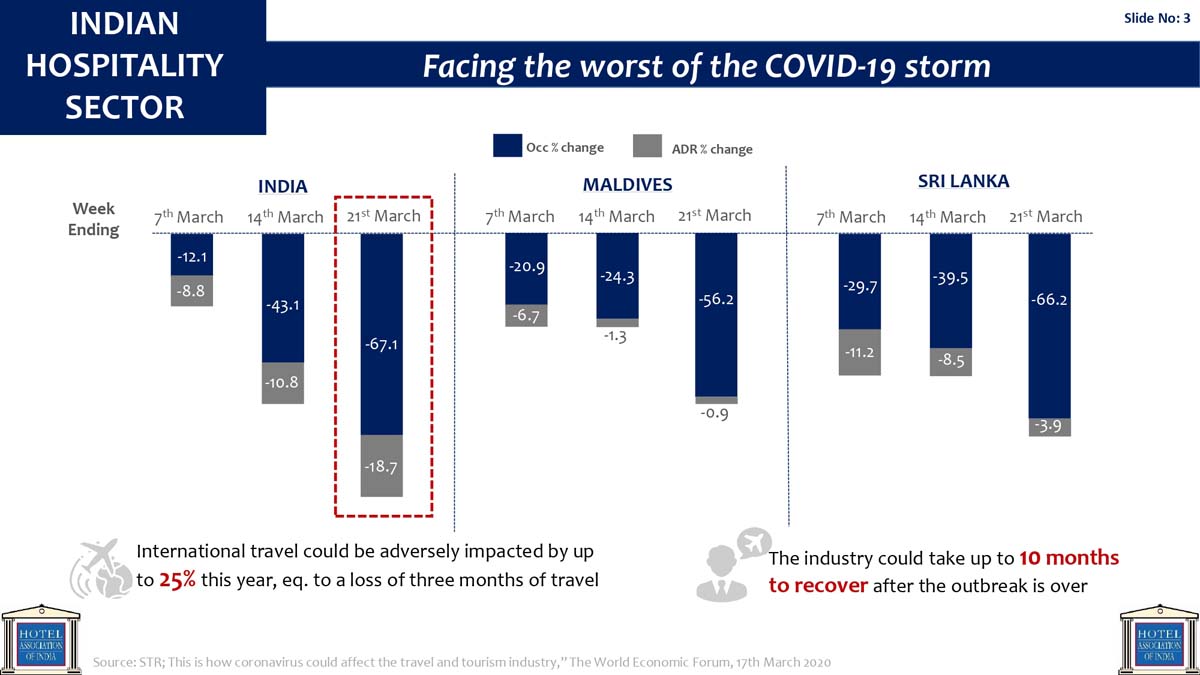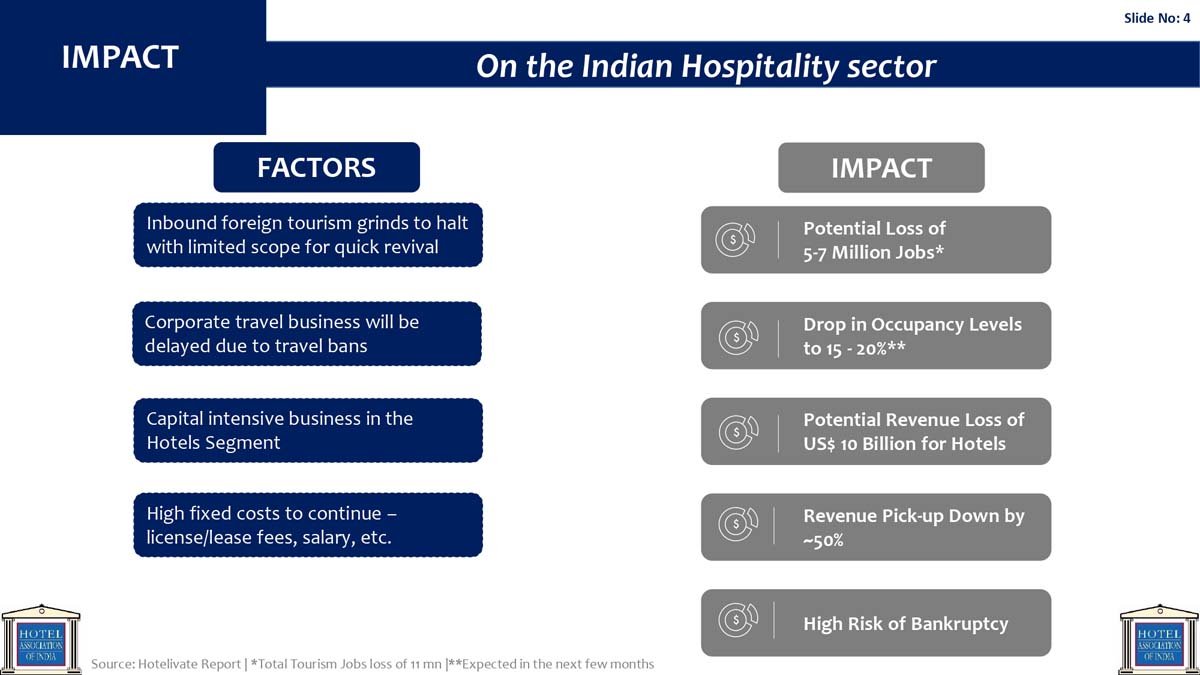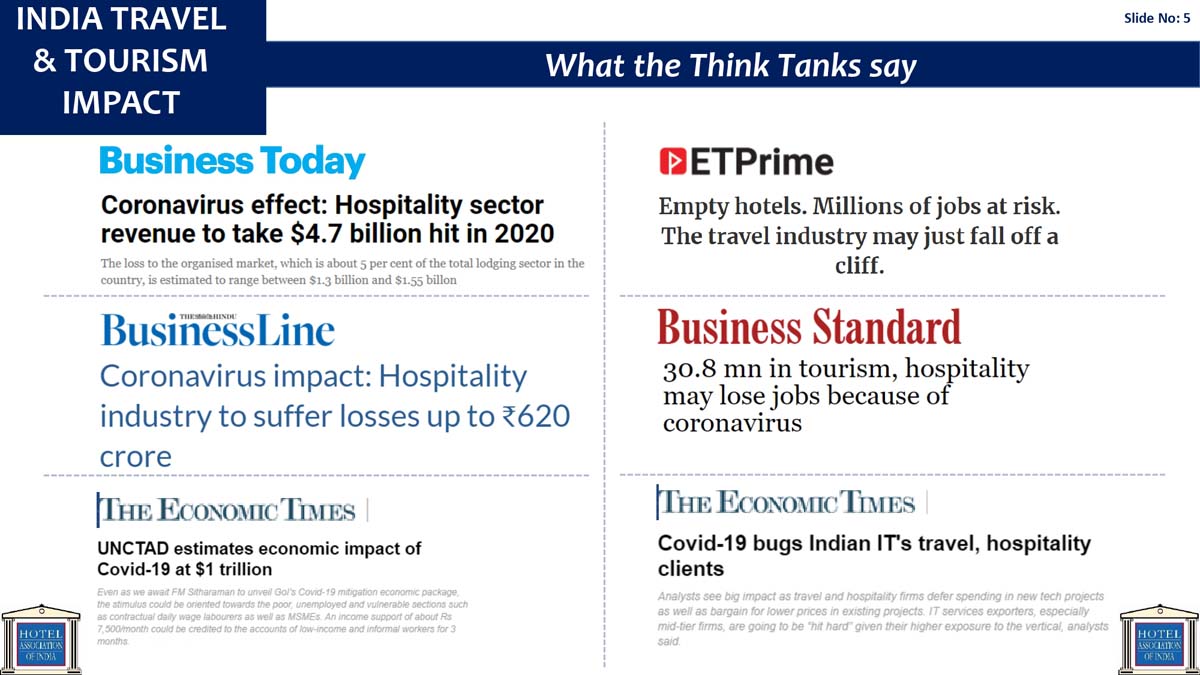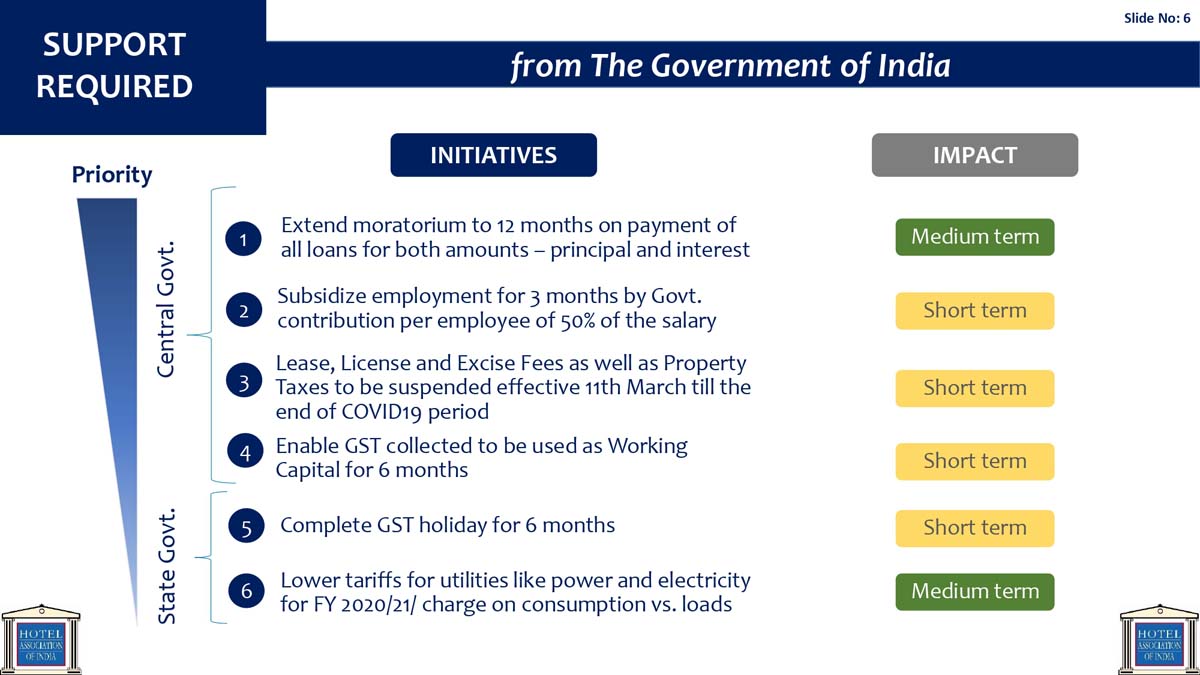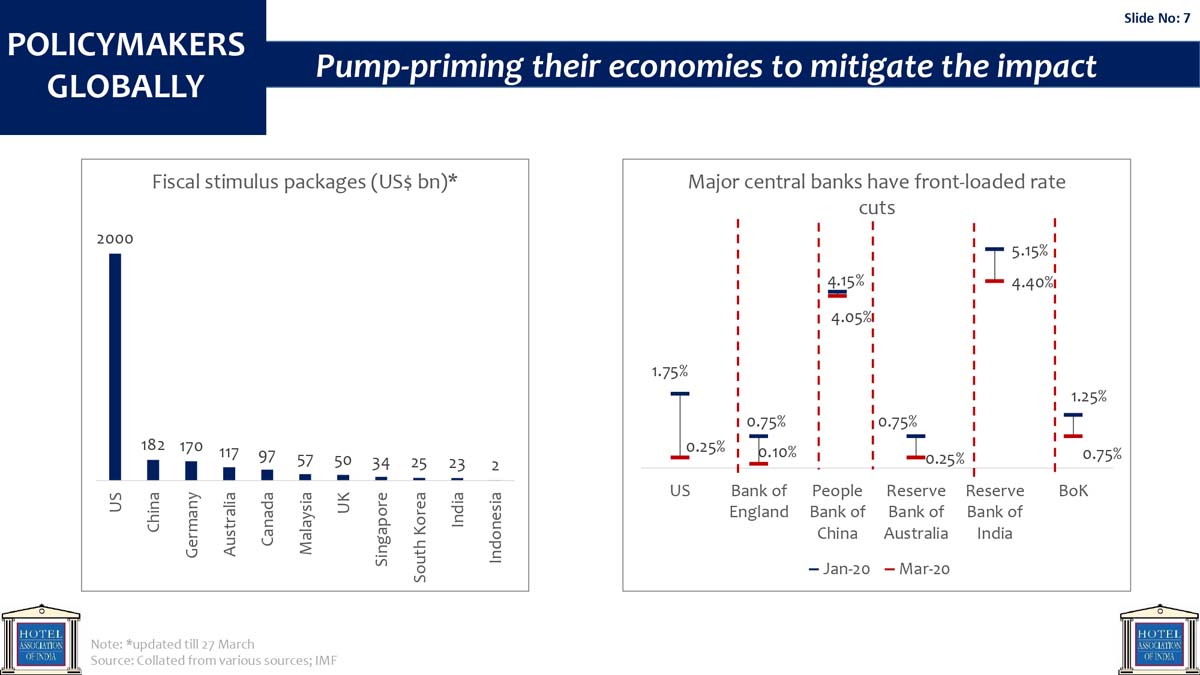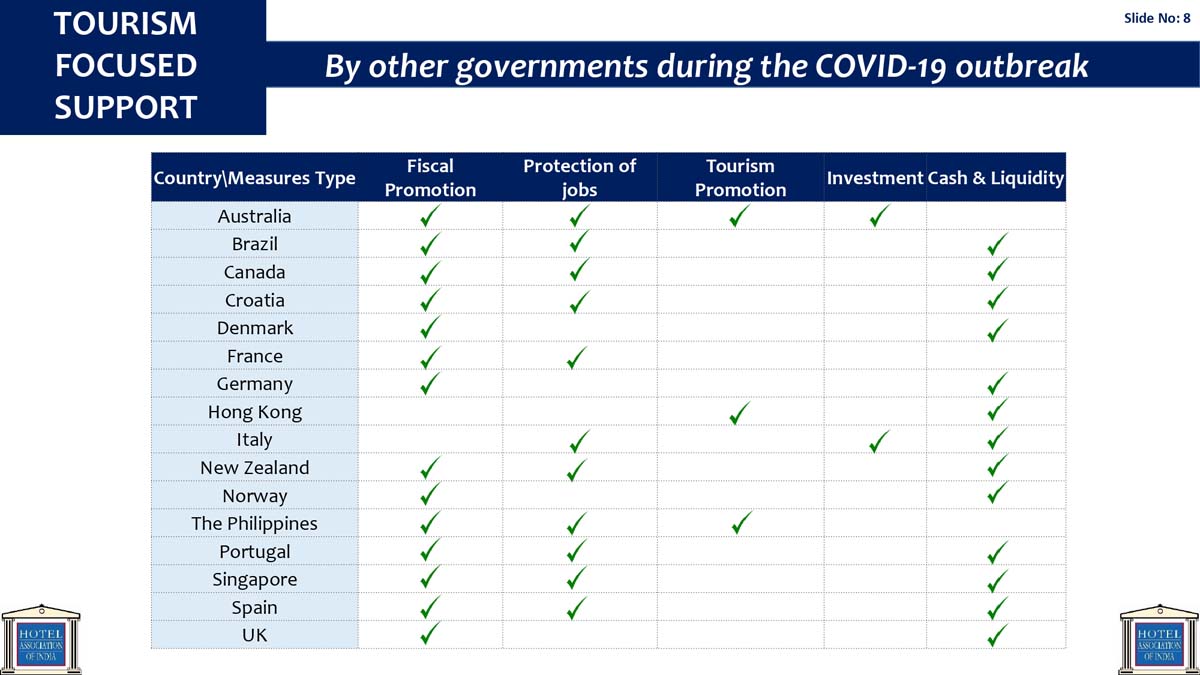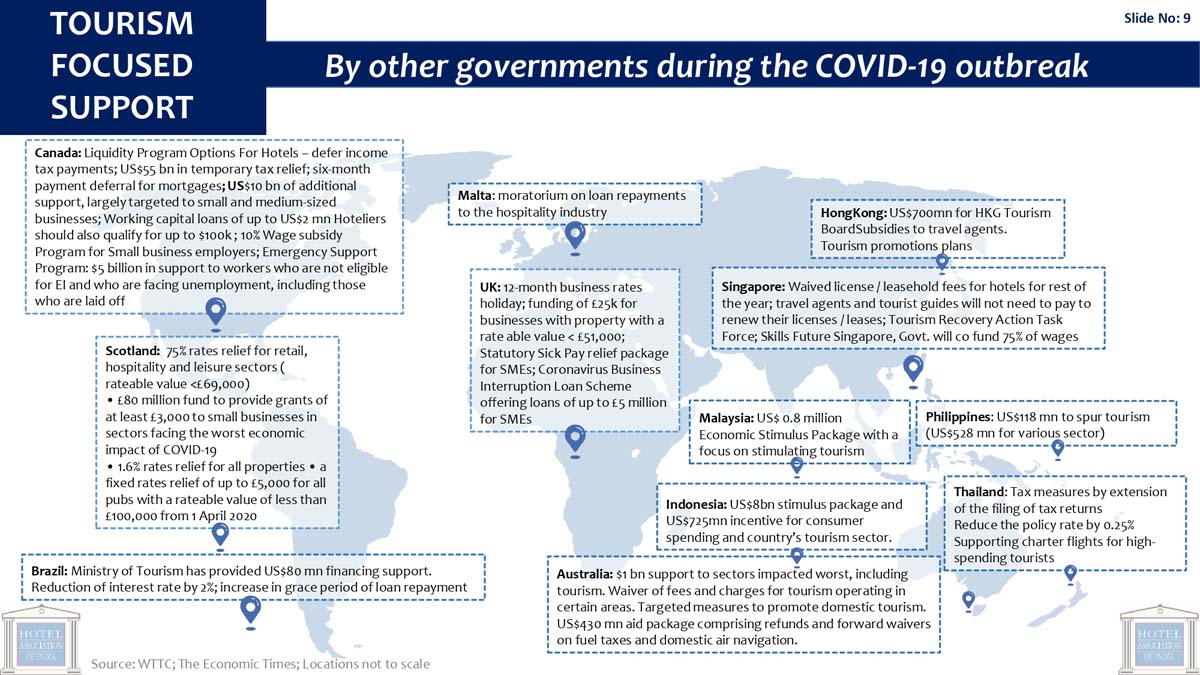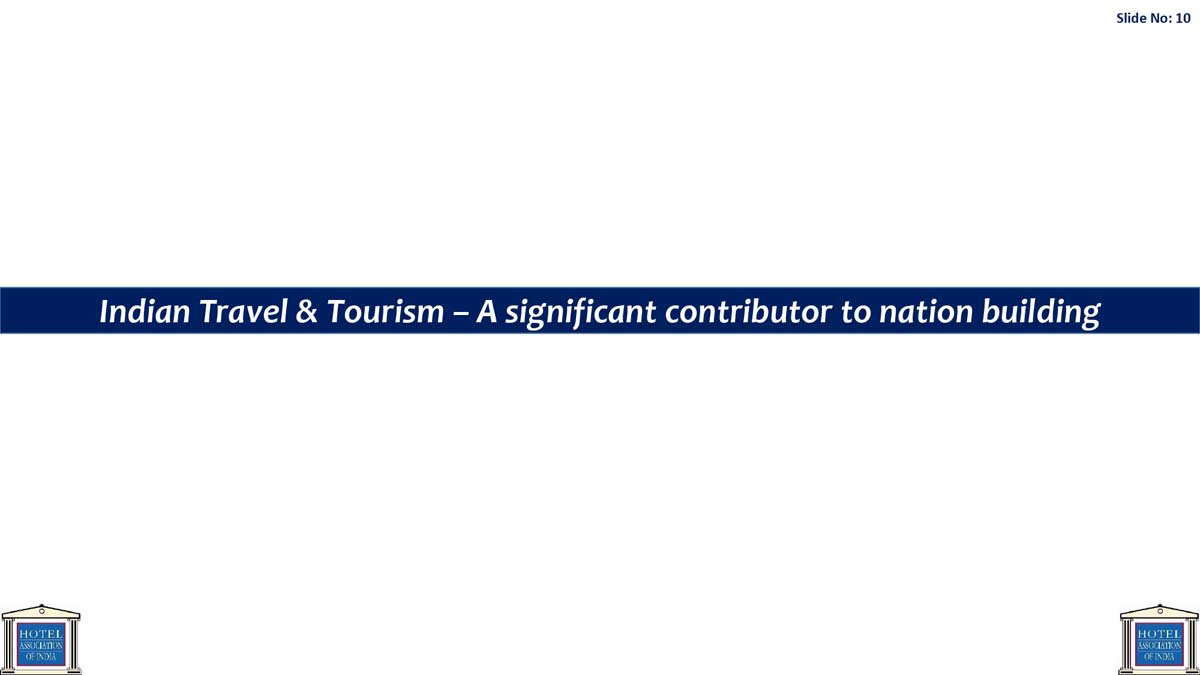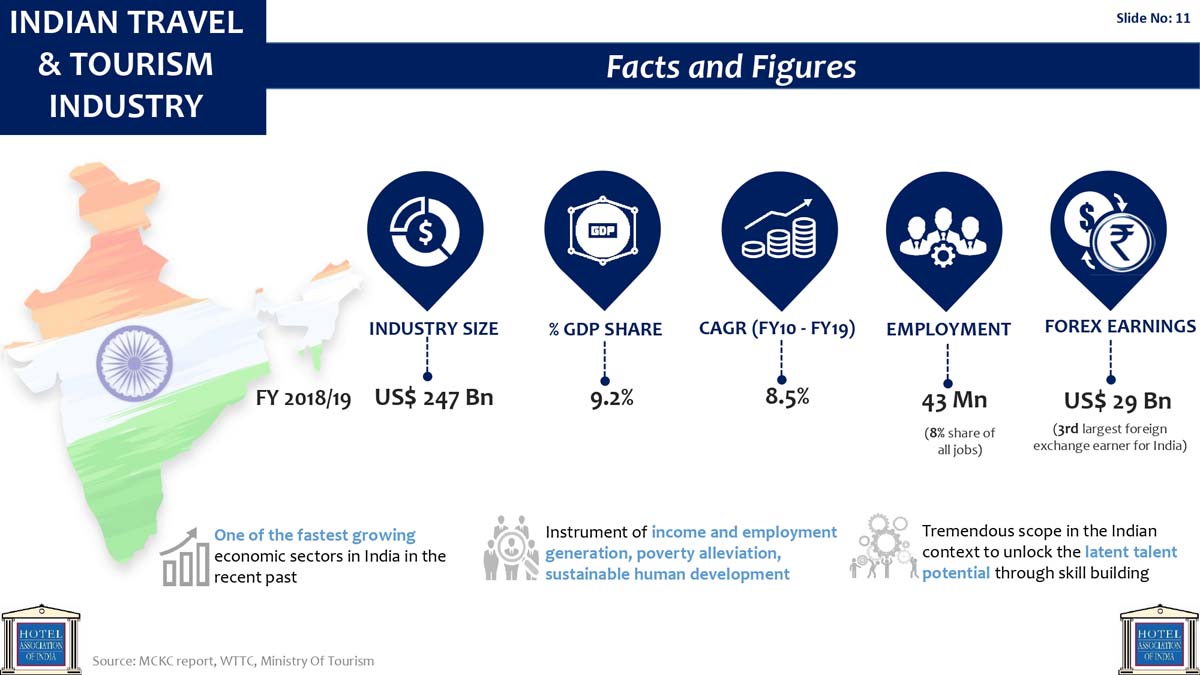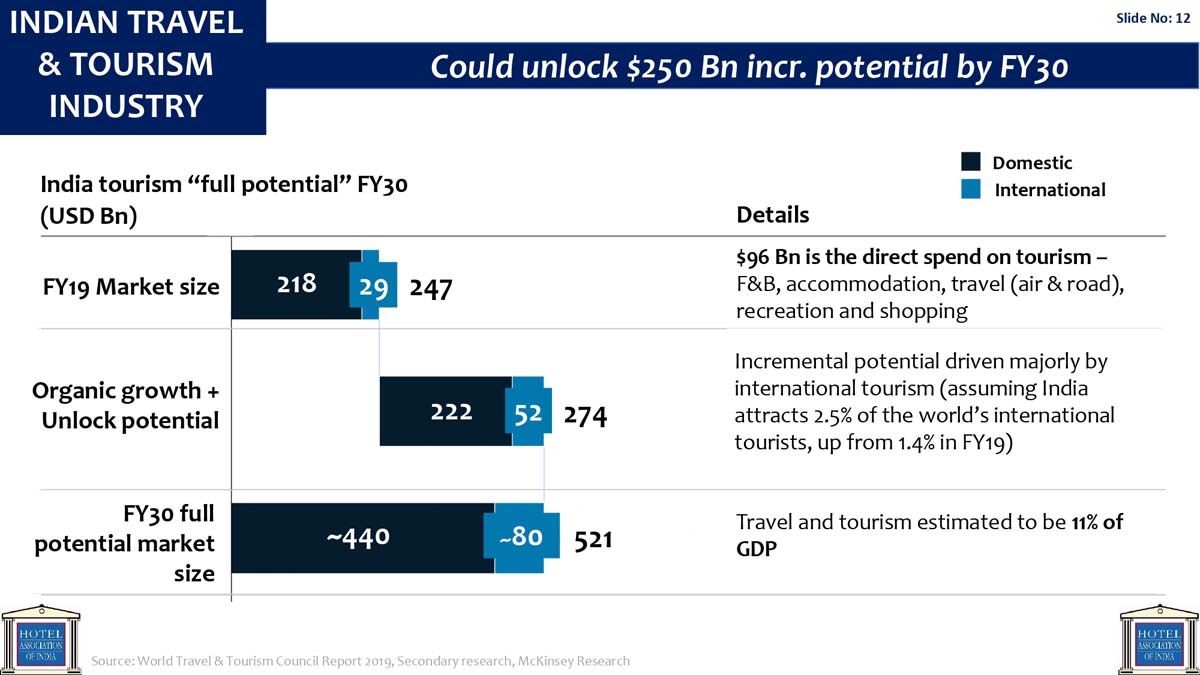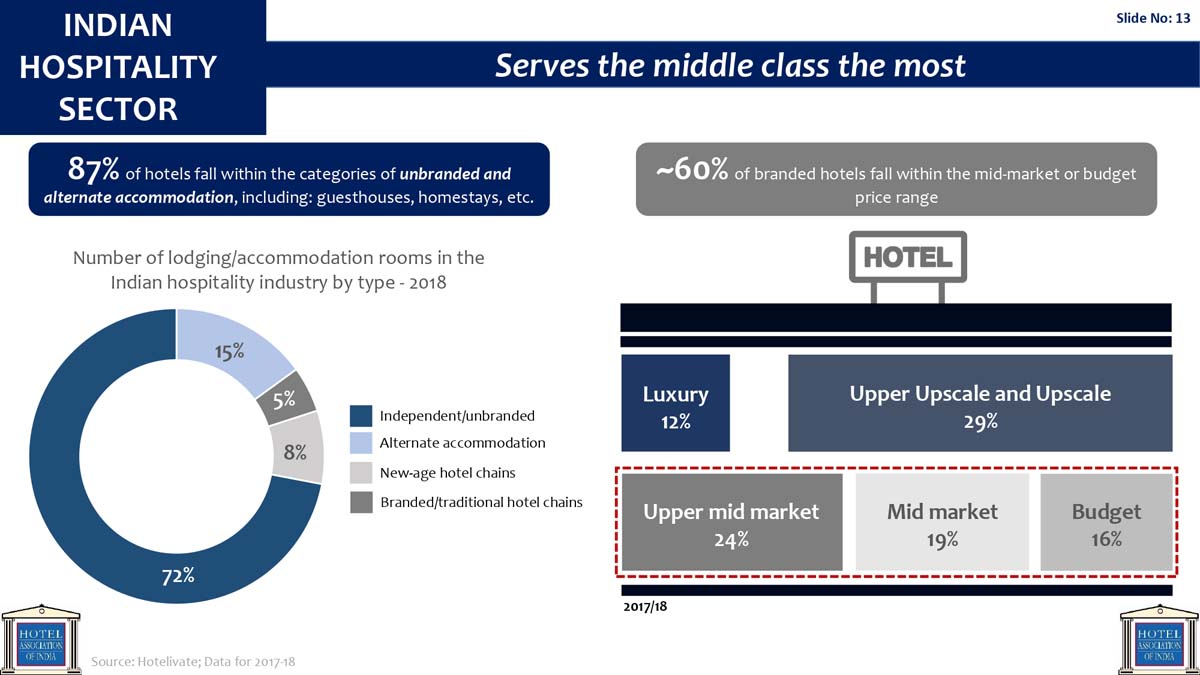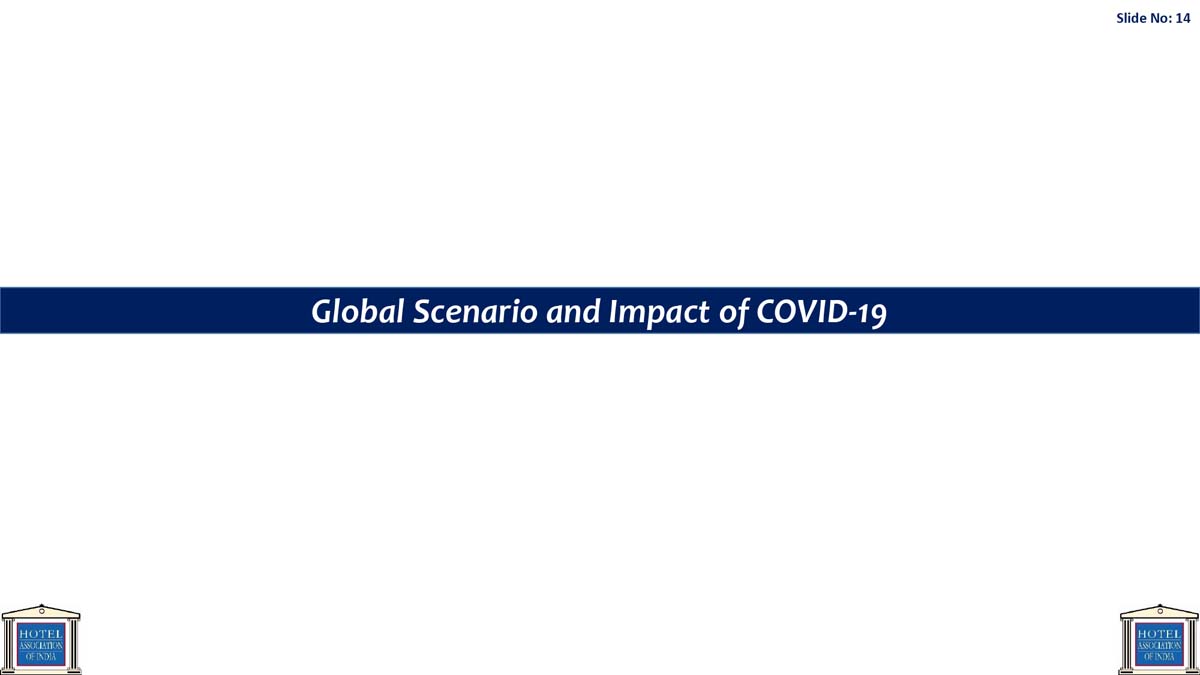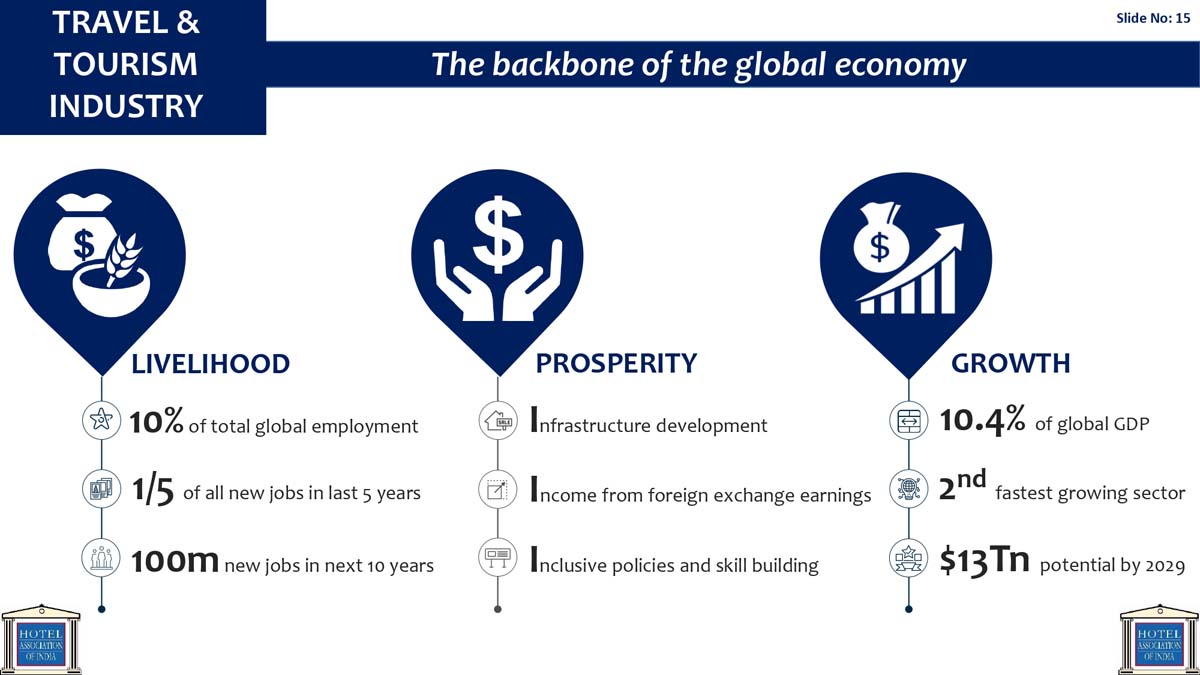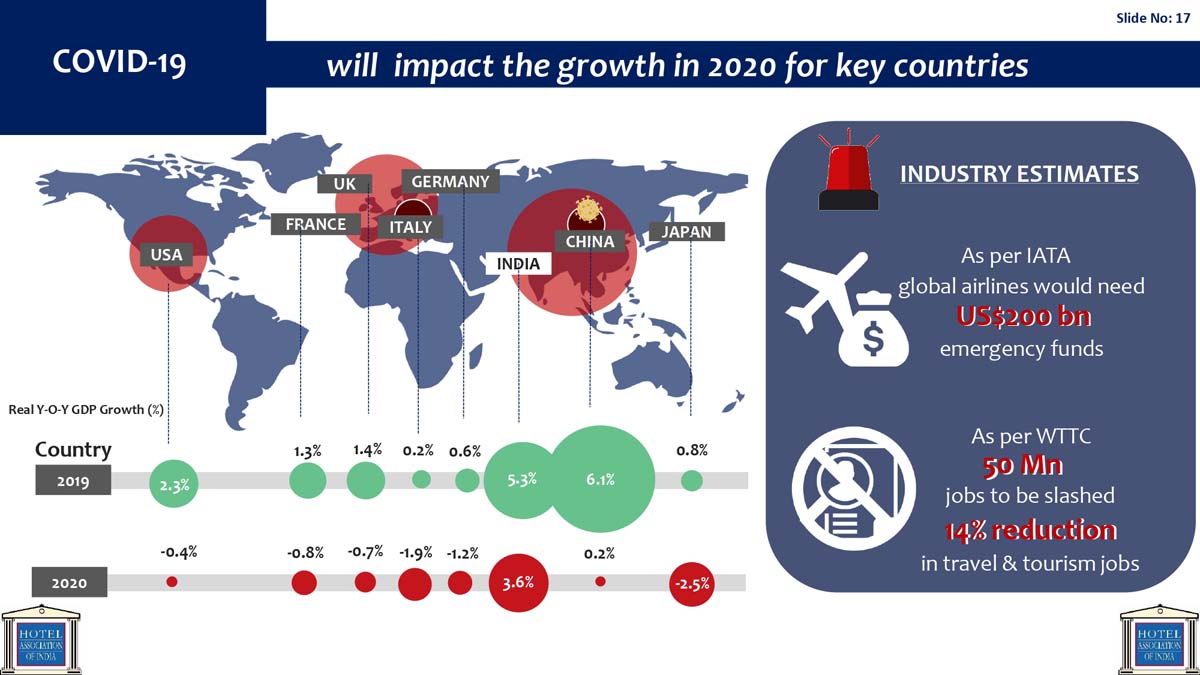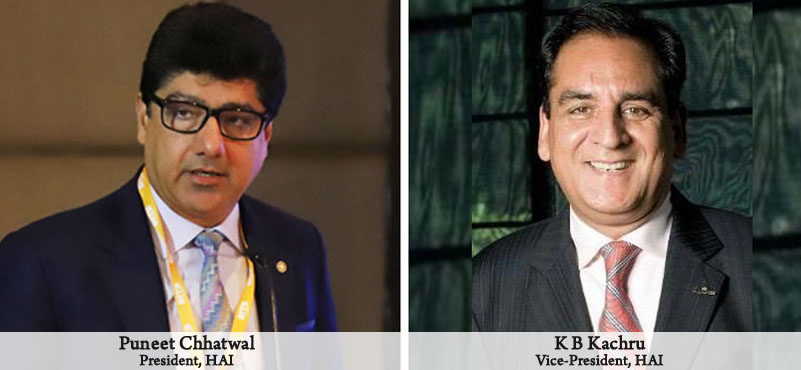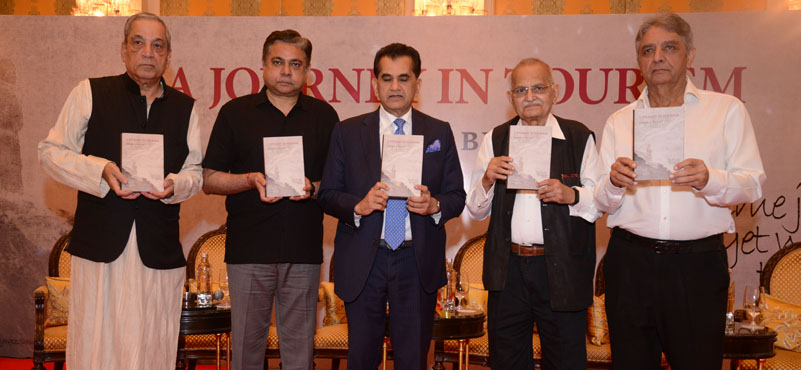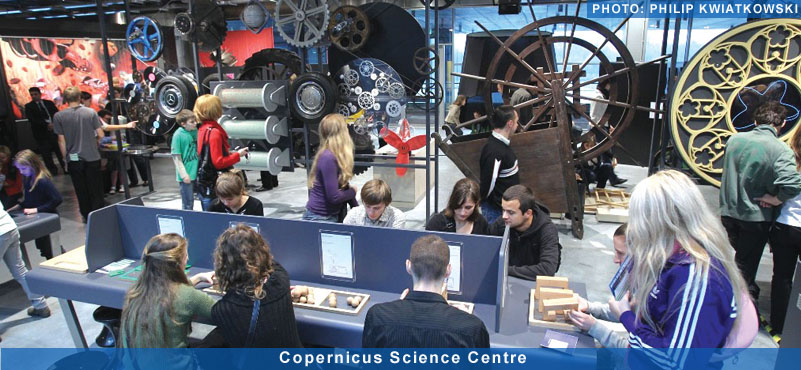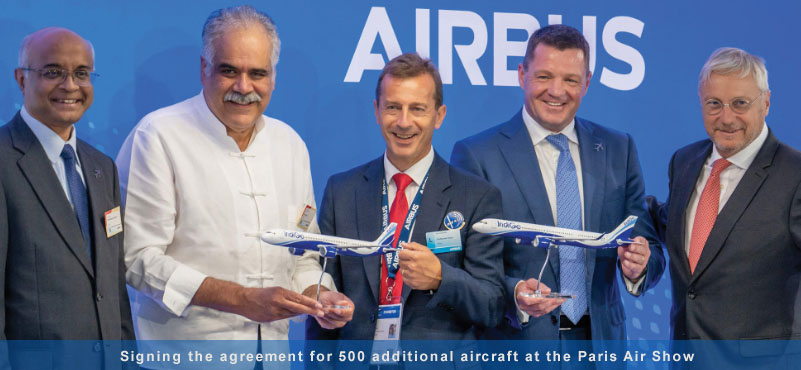Various representations have been made by industry bodies. Hotels Association of India (HAI), represented by its Executive Committee, comprising of senior members of the country’s hospitality industry, including Priya Paul, Patu Keswani, Nakul Anand, Jyotsana Suri, Sanjay Sethi, J K Mohanty and others, have been petitioning policy makers in government to look at hotel industry woes.
• How bad is bad for the hospitality industry across categories and brands. As of now, how many hotels across the country are closed,
This global pandemic has impacted the industry severely. We believe that international travel could be adversely impacted by more than 50% this year, which is equal to a loss of six months of travel. This is a huge dent. The fact that the global economy is slipping into recession would inevitably impact Travel, Tourism and Hospitality industries at international and national levels. UN estimates that world economy would shrink by almost 1 percent in 2020 instead of growing at a projected 2.5 percent.
The nation-wide lockdown and ban on flights since March 24th, has impacted both domestic and international travel and as a result a significant number of hotels across the country are closed. More than 50% of the hotels in both branded and unbranded sector have closed down for business.
• How big is the hole among hotel owners? What is the level of actual distress, among your owners? And, some estimate across the owning class across brands?
Much like industry players, hotel owners too have been severely impacted by the closures. Hospitality is a capital-intensive business and many owners take loans to build hotels. On an average it takes 7 years to repay these loans taken. Then there are additional interest costs that also come into play. Thus, business coming to a total standstill is not only causing revenue losses but also debt servicing issues for some of the owners.
• You have made a representation to the PM, and to the central government. Should this be made also to select states, to fast track some response. After all, on the ground, many issues like electricity charges, etc are local subjects. Are the states in a better position to handle this crisis?
We believe some solutions will come from state governments and some from the Central government. Beyond the proposals that we have submitted to the PM’s office, we have already reached out to state governments requesting for a complete GST holiday for 6 months and lower tariffs for utilities such as power and electricity for FY 2020/21 or charge on consumption vs. loads.
• Is this possibly a continuing problem that we address only the centre and not as much the states? What solution do you suggest for this on some permanent basis?
We believe the solution lies in support from both central and state government bodies. As mentioned above, we have made submissions to both the central and state government as the crisis needs to be handled at both a federal and local level.
• You have, in your presentation, cited many countries, excluding USA, that are the size of Indian states? Somewhere, does it help to bring a state-wise report, for better understanding among state governments? Is there any study available like for Rajasthan, Goa and Kerala? To say how can been the impact on their economies?
We are in a dynamic situation that is evolving by the minute. It is too early to put together accurate numbers to quantify all the data available and garner conclusive insights. We are aware that the impact across the country has been severe, but considering the ambiguity around when the lockdown will be completely lifted, we believe it will take some time before we can conclusively measure the full impact on the economy and generate numbers for individual states.
• How can industry help itself in these trying circumstances?
At this point, it is not about individual brands or individual hotels. Everyone from hospitality providers, vendors, employees and government agencies need to come together. A unified response is required to counter the impact of the pandemic. Also, as an industry, we must learn from the the crisis and work collaboratively to put in place certain best practices that can help us cater to the new normal.
• Looking at the road ahead, people like me suspect this will be a long haul curtailment, with very phased out withdrawals of controls, which it must be, and will bring a social and behavioural change in our people, at least among hotel users! Is there any industry response being readied for this change? So that we have ready a list of DOs and DON’Ts suggested by us?
In today’s volatile world, any company management has to factor in multiple disruptions. For the hotel industry these normally were wars, recession or political developments. To these has been added a new factor – global health issues. We will now always have to factor in this as well in our business plans.
We believe social distancing will become part of the new normal, as will a sharper focus on hygiene. As an industry, we are already geared towards offering very high standards of hygiene, however some augmentation to these efforts will be required to meet the new expectations from guests and other stakeholders.
• I asked this question in a recent article, can industry continue to do what they are doing, as organizations, but can this, too, be given an industry face, to express that Tourism Cares? Important that when industry goes to government for help, it also goes to government to say Tourism Cares? Your response, not just for the period of the crisis, but beyond as well?
When it has come to crisis in the past, such as 26/11 attacks etc. the hospitality industry has come together to help those in need in the society and the community at large. This time is no exception. For instance, IHCL has so far distributed over 1,40,000 meals to medical staff combatting the pandemic in Mumbai, Delhi, and Bangalore, as well as 1,75,000 meals to migrant workers in Mumbai. Other players across the industry have organized community kitchens for migrant workers while also distributing food packets where needed. Moreover, the hospitality industry has also stepped up and provided rooms for quarantine purposes to state and local governments. We see such concerted effort from the industry continuing well beyond this crisis, as it has in the past.
• What response are you expecting from the government to your recent representation? And by when?
As we have mentioned above, we have already reached out to both state and local governments. We are quite optimistic and are looking forward to hearing back from the Government.
• How can hospitality industry convert this crisis situation into an opportunity, to turn a new leaf within the industry, to be able to express to the world at large how you contribute to the economy, etc – all that you have been saying all these years, and not met with adequate success? Is there an opportunity here?
Every situation is a learning opportunity. Tourism is one of the fastest growing sectors in the Indian economy. It contributes 9.2% of the country’s GDP and employs 43 million people – which is 8% of all jobs in the country. So tourism has a huge impact on the economy and it is an extremely large sector. This will continue to be a significant contributor to the economy. The opportunity lies in recognizing the learnings from this crisis, adapting innovative business streams and putting processes in place to address the needs of the new normal.
• Individually, for organizations and also for individuals, this crisis is virtually hitting ground zero. It is 9/11 for so many sectors and companies. They have been razed to the ground, to start again, on a fresh plate. As an industry, you are also virtually closed. As an industry, how would you like to start afresh, on a clean slate. What are your learning lessons from this crisis, to take them forward, in your journey afresh.?
As mentioned above, the crisis has fundamentally changed the way we approach hospitality as a business. While we include processes geared towards enabling social distances and better hygiene, we must also reassess how we approach crisis as a whole.
A key learning from the ongoing situation and a change we would like to bring about in our ways of working is to institutionalize a permanent cognitive task force whose responsibility shall be to constantly monitor and assess risks and opportunities, factoring in global volatility and potential challenges to business through various scenarios including health/natural or other disasters.
